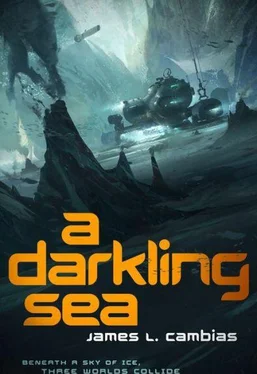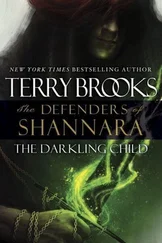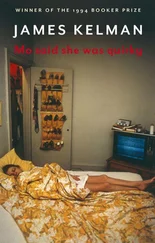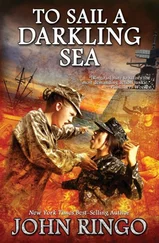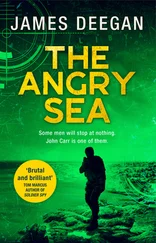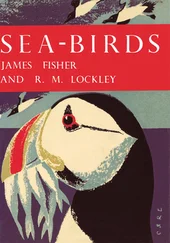The schoolmaster isn’t impressed by his affiliation. “How far do you know the dictionary?”
“Up to 4,000 or so, and a scattering of others.”
“Ah. Up among the plant names. Beyond that, there is a vast expanse of obscure tools, followed by some less-common stones, and then a series of recondite but intriguing concepts. If you study ancient writings I take it you are a scholar?”
“Of a sort, yes. I am the author of a book about old inscriptions.”
“Do you have it?”
“No. It is back in my old home, if it survives at all.”
“I see. Still, it is good to encounter an educated adult. A person in my profession does not meet many. Children who can barely speak and farmers who hoard talk like beads. I have a book of my own, if you are interested in looking at it—a new form of dictionary, in fact. I rearrange the words according to a more logical scheme, beginning with important ideas like existence and continuity rather than commonplace things like stone and food and death.”
Broadtail can feel his strength returning as his stomach fills. “I think I can swim now,” he says.
“Good. I have a lot of things to carry. I am returning from selling off a batch of apprentices, and I have a load of supplies. I have no helper now—I remember my last assistant leaving because of an argument about how to instruct the youngsters. I hope you are not the sort who thinks education should only cover practical matters. My pupils get the broadest possible training. I cannot teach them everything, of course, but I can at least give them a taste of things like mathematics, geology, navigation, history, and physics.”
“I am hired, then?”
“You are. You get food and shelter in my camp—we can take it in turns to go hunting—and a third of the profits from the sale of the pupils you help train. You also get trained yourself, by a master in the art of schoolteaching. But I warn you, this is not a job for the weak or the fearful. A school of hungry youngsters can rip an adult apart if he isn’t careful. We swim far, often on small rations. Sometimes you must fight the bigger children to keep the others obedient. And the waters here are dangerous—tricky currents, hungry hunters, and other things.”
That brings an echo of memory. “I remember a noise, a tapping or hammering sound.”
Oneclaw’s answer is hushed. “There are strange things in the waters here. A whole abandoned city lies not far from my camp. Sometimes there are strange sounds and flavors in the water. I have a theory about them, but I wish to wait until we reach the camp to tell you.”
They swim on, resting every few cables, until the camp is in echo range. Broadtail is a little disappointed at how small and shabby the place seems. Oneclaw has a crude little shelter built of uncut stone and gobs of silt, and there is a very rickety pen of netting and poles to hold the pupils. A couple of ragged catchnets on tall poles flutter empty in the current.
“Home again!” says Oneclaw. “I am greater than any vent-town landowner; my domains extend for hundreds of cables in every direction. Nobody ever challenges my boundary stones.”
The memory of Ridgeback keeps Broadtail from going along with the joke. “How many students do you normally keep?”
“I can manage three or four myself, but with help, possibly as many as ten. It depends on how many we catch, of course. There is a warm current about fifty cables from here where wild children school. I plan going out with you to net as many as we can. Start with twenty or so, since half of them usually die or get eaten by the others.”
By the time Rob and the others reached the station and shed their suits, the Sholen coup was complete. Dr. Sen was speaking over the PA system. “In the interest of safety I must ask everyone to cooperate with the Sholen soldiers. Follow all their instructions. They have weapons and we do not. I am as distressed by this as everyone else, but we are in a fragile shelter at the bottom of an alien sea. Fighting would be suicide for all of us.”
“Cowardly bastard,” said Dickie Graves. “We can take them down right now if we move fast. We’ve got tools, knives—”
“No, Dickie,” said Josef. “Dr. Sen is correct. It would be madness.”
Graves looked almost ready to cry, but he nodded. “All right, then. For now.”
Rob went upstairs to look for Alicia. He found the six Sholen soldiers in the common room with Gishora, Tizhos, and Dr. Sen.
The troops were still suited up, and their outfits looked different from the other two—thicker and bulkier, with armor plates on vital spots and rigid fishbowl helmets instead of flexible hoods. The six of them didn’t leave much space in the common room for any humans.
They were definitely armed: all six had funny-looking snub-nosed rifles with three barrels big enough to shoot golf balls slung on their backs, and shovel-handled pistols in chest holsters. Two of them watched Rob as he stopped, hesitated, then hurried out through the doorway into Hab Two.
Alicia was in her room. “Are you all right?” both of them asked simultaneously when he came through the door. He held her for a long moment, then she helped him get out of his damp suit liner and into a slightly less damp coverall.
“All comfortable now?” she asked. “Because now I wish to scream at you.”
“I don’t think they sent in the soldiers just because of a couple of practical jokes.”
“How do you know? You keep expecting the Sholen to be reasonable! They are alien intelligences, Robert—they do not think as we do.”
“It seemed like a good idea,” he said, instantly aware of how lame it sounded.
“It was childish, and it accomplished nothing—except to anger the Sholen.”
He glared at her. “Well, I guess you’d better start packing, then. They’re going to stuff you into the elevator along with the rest of us. You’ll have to go back to the Marianas Trench now. Have fun.”
She swore at him in Italian and German as he turned to go. A bundle of his spare clothes hit him in the back of the head.
Strongpincer finishes the last of the towfin meat. He pings the camp. The place is a mess, with shell fragments, empty containers, skins, and heaps of loot from the convoy all scattered about. Most of the containers are empty, but Strongpincer remembers happily all the delicacies inside them.
His new shell is hard and spiky, and he’s bigger and more fearsome than ever. The other two are still soft, sheltering among the rocks and eating whatever he brings them.
It is a good time to make plans. The food is running out, but they still have one healthy tame towfin and a load of equipment. Selling everything at one of the vent towns would bring a heap of beads, and the chance to live on public-house food and sleep in a shelter.
But Strongpincer can imagine the beads used up, and his little band wandering cold water again. He wants more. Strongpincer wants to be a house holder, with his own ventwater, a shell all overgrown with parasites, and food just for the picking. A towfin and a convoy’s worth of loot aren’t enough to buy even a small house.
But they are enough to outfit a larger band. All he needs are more people. Other adults are troublesome, though. He remembers disputes over who is leader. Even with his new bulk he imagines conflict. No, no more adults.
Children are another matter. Get half a dozen youngsters just before their first adult molt, give them food and teach them a few simple words, and Strongpincer has a force that can tackle a medium-sized farm or fishing station.
He knows where to look for children: out in cold water they live in little schools. Strongpincer imagines leading Shellcrusher and Weaklegs into the cold to round up new followers. He plans how to train the youngsters, and as he drifts off to sleep he thinks happily of conquest.
Читать дальше
